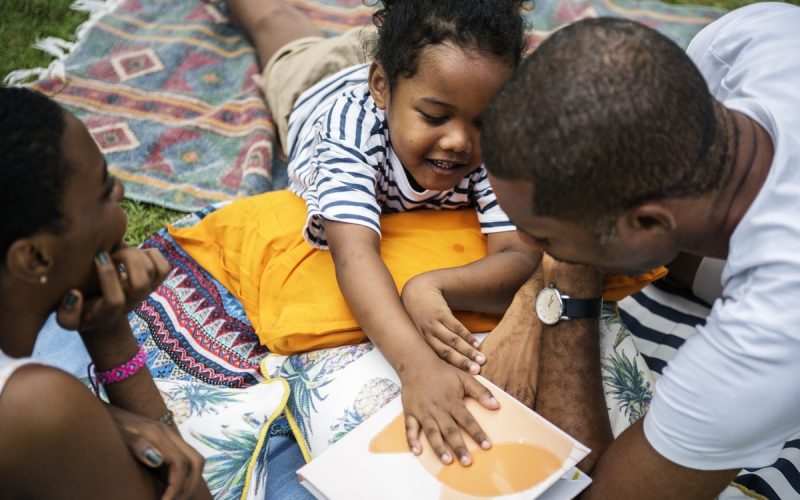Parallel parenting is a setting in which parents who are divorced can properly take care of their children by disengaging from one another and having limited access to each other.
When two couples’ relationships end badly, their dislike for each other won’t end immediately.
It may continue for a very long time in some cases. Sometimes, this may result in shouting and quarreling at each other in the presence of their children, which is not advisable at all.
Parallel parenting reduces access to previously married parents, especially in very hostile situations.
Parallel parenting tends to reduce the rate of issues amongst ex-parents, especially in the presence of their children, as it drastically reduces the level of interactions between these kinds of parents.
Parallel parenting allows parents who had married before to detach themselves from each other and then choose the most appropriate way they intend to care for their children.
How Parallel Parenting Differs From Co-parenting
Parallel patenting doesn’t refer to the same thing as co-parenting. In co-parenting, the two ex-parents are friendly and can relate properly with each other even when they know that their relationship is just on the surface.
Co-parenting can come together to raise their children in a healthy and conducive environment.
Co-parenting parents can set aside their differences. They hardly feel bad about one another and can settle issues in the presence of their children without nagging, fighting, or quarreling.
Co-parenting parents can go shopping together with their children without any issues. They can also attend school meetings together.
However, in parallel parenting, everything is often done separately. Parents don’t attend school meetings together, and they don’t engage in extracurricular activities with their children together.
Communication is rarely possible with parallel-parenting parents, and it occurs only when vital issues need to be addressed.
Parallel parenting is always very advisable for parents coming out of emotionally abusive relationships. This is because it limits access to both ex-parents to avoid unforeseen circumstances amongst both ex-parents, especially in the presence of their children.
Benefits of Parallel Parenting
Many people may think parallel parenting doesn’t benefit the children because the two parents don’t have a good working relationship, but this is purely not true, as parallel parenting tends to reduce the level of conflicts in the children’s presence.
Parallel parenting methods can also assist in coping with divorce or separation instances. Other benefits include;
- Reduced interference: parallel parenting allows the two parents to choose a parenting style that suits them without the other parent’s interference. Here, explanations are not always necessary on why they allow the kids to behave in certain ways. The responsibility of parenting is always from both sides since there’s no agreement on how to parent the kids. The consequences of what happens to the child are normally not attributed to a sole parent in this context.
- Reduces stress: Divorced or separated parents usually opt for parallel parenting. Parallel parenting is usually preferable to protect the child from conflicts that would ordinarily have occurred if the parents were co-parenting. It also reduces stress on children and parents and ushers in a peaceful and loving environment.
- Reduced level of interaction between the parents: Parallel parenting limits communication between the two parents to the barest minimum. Important decisions are usually made and handled maturely and with a high level of civility, thus not bringing the children into certain issues they shouldn’t have known. Parties and get-togethers are normally celebrated with the kids by an individual parent and don’t require both parents to come together.
- Allows for gradual healing: Parents who experienced a bitter end to their marriage through divorce or separation usually find it very difficult just to let go. However, with the parallel parenting method, grievances should begin to reduce as the two parents rarely come in contact.
Ways to Make a Good Parallel Parenting Plan
- Decide how the time will be split with the children: It’s important to carefully determine where they will spend their weekends and weekdays. If they are with this parent on weekdays, they should be with the other parent on weekends. The kids shouldn’t always spend all their time with one parent. Rather, they should spend quality time with the two parents at different intervals. However, the two parents should always carefully plan and agree upon this to avoid conflicts.
- Have a plan to mitigate disputes or conflicts: The idea of parallel parenting is always to reduce rocking conflicts that should have ordinarily occurred. A mediator from a court of law can always help find solutions to problems of this nature to prevent them from escalating.
- Have predetermined locations for pick-ups and drop-offs: Since the aim of parallel parenting is to avoid communication between the two parents, it would be totally wrong to pick up or drop off the children at a particular parent’s home. It is advisable to schedule a place or a parking lot for the pick-ups and drop-offs.
- Determine how to handle cancellations: Cancellations are always unavoidable, so it is necessary to always make provisions for them in case they occur. Have a clear plan on how they will make it up for the time and whether they are willing to make it up.
- Decide on the precise time the children get to spend with the parent: If the plan is detailed, it drastically reduces the level of confusion and leaves no room for manipulation. This also includes the exact pick-up and drop-off times by both parents. Everything should be done simultaneously, and neither side should be biased.
References;
- Fabricius, Williams V., Sanford L. Braver, Priscilla Daiz, and Clorinda E. Velez. 2010 “Custody and Parenting Time: Links to Family and Well-being after divorce.”
- Kelly, J. & Johnston, J. (2001). The Alienated Child: A Reformulation of Parental Alienation Syndrome. Family and Conciliation Court Review. 38, (3), 249-266
- Wallerstein, J., Blakestee, S., and Lewis, J. (2000). Parallel Parenting Benefits and The Unexpected Legacy of Divorce: A 25-year Landmark study. New York: Hyperion.
- Stahl, P. (2000). Parenting After Divorce. San Luis Obispo, CA: Impact publishers.








